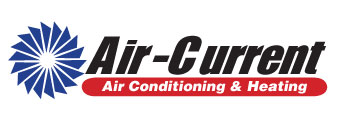
We spend a lot of time inside. In fact, the Environmental Protection Agency (EPA) has estimated being within a building comprises 90% of our time. Although, the EPA also says your indoor air can be three to five times worse than outdoors.
That’s due to the fact our houses are firmly sealed to increase energy efficiency. While this is fantastic for your heating and cooling bills, it’s not so good if you’re a part of the 40% of the population with respiratory allergies.
When outdoor ventilation is restricted, pollutants like dust and volatile organic compounds (VOCs) could get stuck. Consequently, these pollutants can irritate your allergies.
You can enhance your indoor air quality with crisp air and routine cleaning and vacuuming. But if you’re still having issues with symptoms during the time you’re at your house, an air purifier might be able to help.
While it can’t eliminate pollutants that have settled on your furniture or carpeting, it could help clean the air circulating throughout your residence.
And air purification has also been scientifically verified to help reduce some allergic symptoms, according to the American College of Allergy, Asthma and Immunology. It may also be useful if you or a loved one has lung trouble, like emphysema or COPD.
There are two models, a portable air purifier or a whole-home air purifier. We’ll examine the advantages so you can learn what’s appropriate for your house.
Whole-House Air Purifier vs. Portable Air Purifiers
A portable air purifier is for one room. A whole-house air purifier accompanies your HVAC unit to clean your full house. Some models can work on their own when your HVAC equipment isn’t operating.
What’s the Best Air Purifier for Allergies?
Look for a purifier with a High Efficiency Particulate Air (HEPA) filter. HEPA filters are installed in hospitals and deliver the greatest filtration you can get, as they eliminate 99.97% of particles in the air.
HEPA filters are even more powerful when installed with an ultraviolet (UV) germicidal light. This mighty combination can wipe out dust, dander, pollen and mold, all of which are standard allergens. For the ultimate in air purification, consider equipment that also has a carbon-based filter to eliminate household vapors.
Avoid buying an air purifier that generates ozone, which is the main element in smog. The EPA warns ozone might aggravate respiratory troubles, even when released at small amounts.
The Allergy and Asthma Foundation of America has created a listing of questions to think over when buying an air purifier.
- What can this purifier take out from the air? What doesn’t it take out?
- What’s its clean air delivery rate? (A better amount means air will be freshened more quickly.)
- How often does the filter or UV bulb need to be changed]? Can I finish that on my own?
- How much do spare filters or bulbs cost?
How to Reduce Seasonal Allergy Symptoms
Want to receive the {top|most excellent|best] performance from your new air purification unit? The Mayo Clinic recommends completing other steps to limit your exposure to things that can trigger seasonal allergies.
- Stay in your home and keep windows and doors closed when pollen counts are elevated.
- Have other household members trim the lawn or pull weeds, since these jobs can trigger symptoms. If you have to do this work alone, you may want to consider trying a pollen mask. You should also bathe immediately and put on new clothes once you’re done.
- Avoid hanging laundry outside.
- Use the AC while indoors or while in the car. Consider using a high efficiency air filter in your house’s HVAC unit.
- Balance your residence’s humidity levels with a whole-house dehumidifier.
- Hardwood, tile or linoleum are the best flooring materials for decreasing indoor allergens. If your home has carpet, use a HEPA filter on your vacuum cleaner.
Let Our Pros Handle Your Indoor Air Quality Necessities
Prepared to progress with adding a whole-house air purifier? Give our professionals a call at 713-322-4318 or contact us online to schedule an appointment. We’ll help you find the ideal system for your house and budget.
